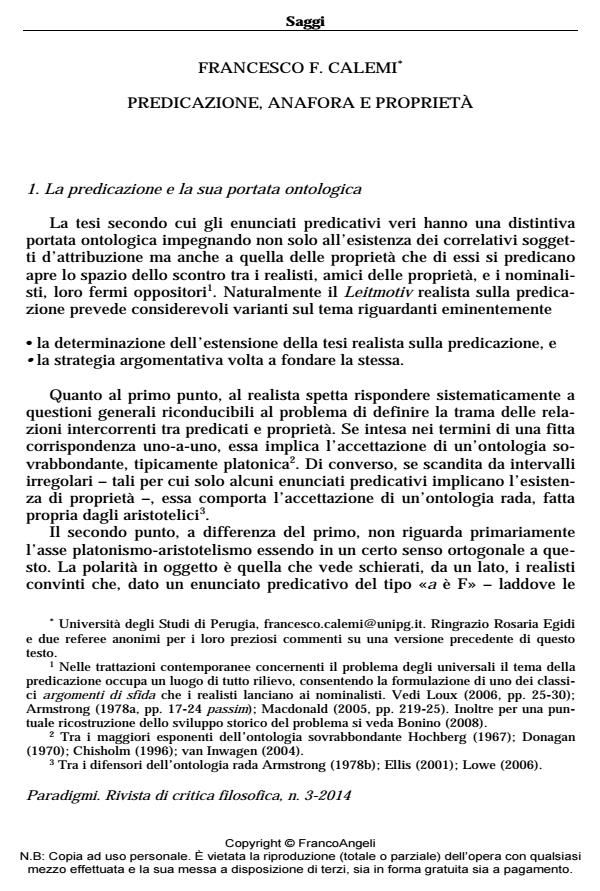Predication, Anaphora and Properties
Journal title PARADIGMI
Author/s Francesco F. Calemi
Publishing Year 2015 Issue 2014/3
Language Italian Pages 18 P. 125-142 File size 72 KB
DOI 10.3280/PARA2014-003009
DOI is like a bar code for intellectual property: to have more infomation
click here
Below, you can see the article first page
If you want to buy this article in PDF format, you can do it, following the instructions to buy download credits

FrancoAngeli is member of Publishers International Linking Association, Inc (PILA), a not-for-profit association which run the CrossRef service enabling links to and from online scholarly content.
Many realists and nominalists, guided by a specific interpretation of the nature of the debate concerning the existence of properties, agree in holding that predicative sentences of the form «a is F» - whereas the schematic letters «a» and «F» stand for, respectively, a name of a particular and a general term -, taken by themselves alone, don’t commit us to the existence of properties. In this paper I’ll take into account the main versions of realism and nominalism that assume the correctness of that thesis, then, moving from what I call "the argument from the anaphoric anomaly", I’ll bring them into question pointing out that their debate is misguided. .
Keywords: Abstract reference, anaphora, nominalism, predication, realism, universals.
Francesco F. Calemi, Predicazione, anafora e proprietà in "PARADIGMI" 3/2014, pp 125-142, DOI: 10.3280/PARA2014-003009